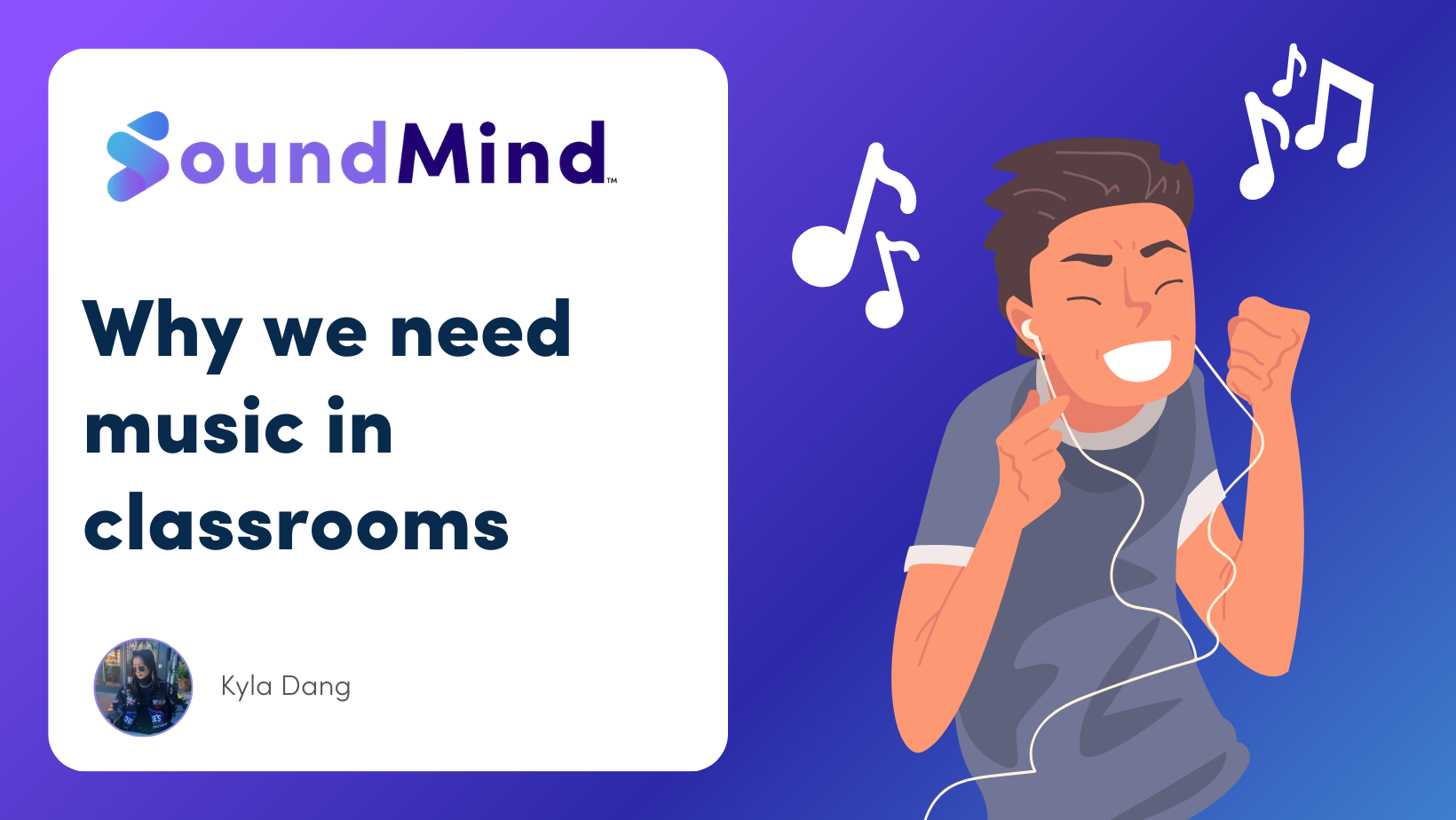Posted on September 7, 2023 by Kyla Dang


At SoundMind, we’re pioneering mental health care with the power of sound. Music is powerful tool that can not only alter or boost our mood, but has physiological effects on the body. It’s common to see students listening to music while studying, but it can actually be helpful in learning environments (aka, the classroom).
Music affects many parts of our brains. Most notably, it increases activation in these specific areas:
There are many reasons why music can be beneficial in learning. Using music in the classroom can increase learning, retention of information, improve focus, and motivate students.
Calming music as well as binaural beats can really help students in the classroom and lower negative feelings associated with education. Specifically, alpha, beta, and theta binaural beats all have positive effects on focus, reasoning, learning, and stress reduction. Using these powerful sounds while students are taking tests, doing work, or studying can be really helpful in boosting their education.
With SoundMind’s binaural beats, students can use the SoundMind Hub to choose whichever binaural beat fits their needs. Plus, it gives educators an easy way to implement quiet time where students focus. During tests, teachers can also put on some calming classical music or a soundscape as background noise to calm students and help them focus. Additionally, encouraging students to listen to non-distracting music while studying can help them retain information for longer, motivate themselves, and have fun while learning.
Music is a versatile and powerful tool that can be used in the classroom and at home to increase memory retention and focus, stimulate the brain, decrease stress, and make studying fun. The power of binaural beats can boost these effects even more by changing brain frequency to a desirable one, turning procrastination into motivation. Try implementing music into every day tasks, both in and out of the classroom, and see how it boosts your brain!
Have you tried out our research-backed binaural beats on the SoundMind app? Download for free here!
Thank you for reading “Piece of Mind”! If you liked this post, share it with a friend and help us increase our positive impact on Gen-Z mental health 🙂
Subscribe to receive blog updates!